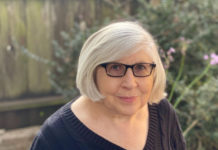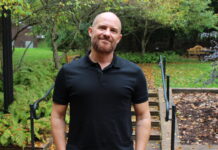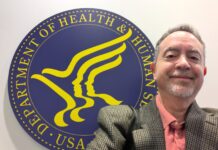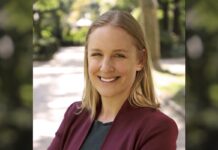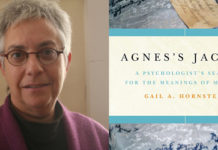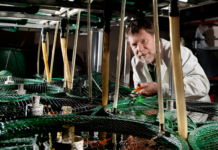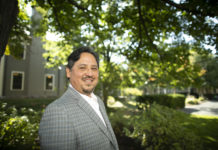The Impact the DSM Has Had On All of Us: An interview with Sarah...
"You're not going to sell many drugs by saying your problem is your life experiences. It's far more effective to say your problem is in the brain. It's an imbalance, we can correct that imbalance, just take our product."
Tensions in Mental Health Care in China: An Interview with Zhiying Ma
Anthropologist Zhiying Ma explores mental health care in China, including tensions between Western psychiatry and socially-oriented local frameworks.
Branding Diseases—How Drug Companies Market Psychiatric Conditions: An Interview with Ray Moynihan
MIA’s Ayurdhi Dhar interviews Ray Moynihan about the marketing of disorders, broadening of diagnoses, and harmful treatments.
We Should Listen to Our Emotional Pain: An interview with Paul Andrews
Dr. Paul Andrews is an Associate Professor of Evolutionary Psychology in the Department of Psychology, Neuroscience and Behaviour at McMaster University. His research focuses...
“All Real Living Is Meeting”: Brent Robbins on Love, Death, and the Possibilities of...
Psychologist and existential thinker Brent Robbins reflects on a lifetime of work, the limits of psychiatric diagnosis, and what facing mortality has taught him about joy and human connection.
How Western Psychology Can Rip Indigenous Families Apart: An Interview with Elisa Lacerda-Vandenborn
An interview with Elisa Lacerda-Vandenborn about the consequences \psychology and mental health treatment can have for indigenous children.
Surviving Antidepressants: An Interview with Adele Framer
That is the truth about withdrawal syndrome: It’s like a 50-50 chance that you’re going to have a problem. If you’re in the unlucky half, you’re gonna be really unlucky.
Is Madness an Evolved Signal? Justin Garson on Strategy Versus Dysfunction
Philosopher Justin Garson discusses the potential benefit of looking at madness not as disease or defect, but as a designed feature.
How Mad Studies and the Psychological Humanities are Changing Mental Health: An Interview with...
In this interview with MIA's Justin Karter, psychiatrist Bradley Lewis discusses the value of art, the humanities, and mad studies in shaping a richer understanding of psychological experiences.
Mad Sisters: An Interview With Susan Grundy
Susan Grundy on her lifelong caregiving journey for an older sister diagnosed with schizophrenia at the age of 13.
Cured: A Memoir—Sarah Fay on Giving Everyone the Chance to Heal
Author Sarah Fay joins us to discuss why "cured" is such a seldom-used word in psychiatry.
Interview with Sonja Styblo: Update on the Massachusetts Benzo Bill
Styblo discusses the history of the Benzodiazepine Bill, its current status, the purpose of the legislation, and why she and others have so vigorously pursued this legislation.
Leading Psychology in Existential Times: An Interview with Kirk Schneider
MIA’s Justin Karter interviews humanistic-existential psychologist Kirk Schneider about how psychology can play a role in confronting the political, social, and climate crises facing humankind.
How to Know What We Don’t Know: An Interview with Psychologist and Novelist Jussi...
MIA's Gavin Crowell-Williamson interviews the neuropsychologist and novelist Jussi Valtonen about how novels can lead us to see the limits of our understanding.
Jock McLaren – The Biopsychosocial Model is a Mirage, Time for a Biocognitive Model?
Dr. Niall McLaren joins us to talk of his experiences working in Australian psychiatry and explains why the models that purport to guide psychiatric diagnosis and treatment are not what they seem.
“Progress Only Occurs when People Make Demands”: Paolo del Vecchio Reflects on a Life...
Paolo del Vecchio speaks with Leah Harris about his decades of public service at SAMHSA, what worries him most about mental health in today’s America, and where he sees hope in the recovery movement that he helped create.
Jill Nickens – The Akathisia Alliance for Education and Research
This week on the Mad in America podcast we turn our attention to prescription-drug-induced akathisia and joining me to discuss this is Jill Nickens. Jill is the president and founder of the Akathisia Alliance for Education and Research, a nonprofit organization formed by people who have personal experience of akathisia.
Looking Beyond Self-Help to Understand Resilience: An Interview with Michael Ungar
Ayurdhi Dhar interviews Michael Ungar about how complex systems make us vulnerable and how resilience emerges in context-specific ways.
Breaking Academia’s Silence on Inpatient Psychiatry: An Interview with Researcher Morgan Shields
Morgan Shields discussed her experiences in inpatient psychiatry and her efforts to bring patient-centered care to this oft-neglected field.
Jim van Os and Peter Groot: When Assessing Antidepressant Withdrawal Methods, RCTs Fall Short
Jim van Os and Peter Groot discuss their paper: “Successful Use of Tapering Strips for Hyperbolic Reduction of Antidepressant Dose: A Cohort Study” published in the journal Therapeutic Advances in Psychopharmacology.
First-Person Accounts of Madness and Global Mental Health: An Interview with Dr. Gail Hornstein
Dr. Gail Hornstein, author of Agnes’s Jacket: A Psychologist’s Search for the Meanings of Madness, discusses the importance of personal narratives and service-user activism in the context of the global mental health movement.
The Effects of Antidepressant Exposure Across Generations: An Interview with Dr. Vance Trudeau
Dr. Vance Trudeau discusses his study's finding that antidepressants may have far-reaching, adverse effects that last up to three generations.
When Healing Looks Like Justice: An Interview with Harvard Psychologist Joseph Gone
MIA’s Ayurdhi Dhar interviews Joseph Gone about how a history of dispossession, conquest, and colonization shapes mental health outcomes in Native American communities.
Interview: How Does Climate Change Affect Youth Mental Health?
Psychiatric epidemiologist Jennifer Barkin talks about her research on the traumatizing effects of extreme weather events on youth and how caregivers can help them build resilience.
Chemicals Have Consequences—Antidepressants and Pregnancy: An Interview With Adam Urato, MD
Adam joins us to discuss what we do and don’t know about the effects of antidepressants on babies and mothers and the importance of counselling in order to aid families in making important decisions about pharmaceutical drug use.







